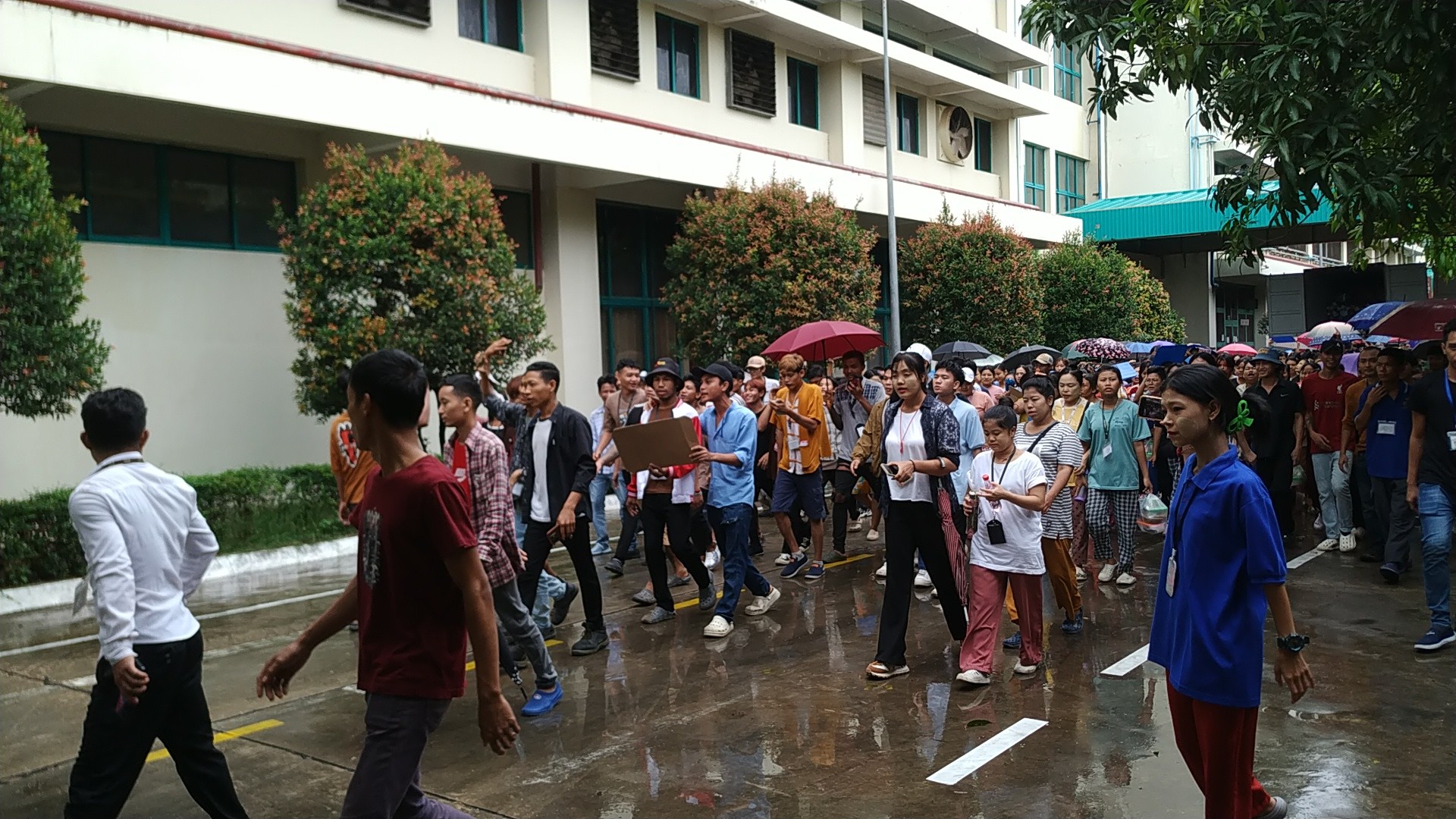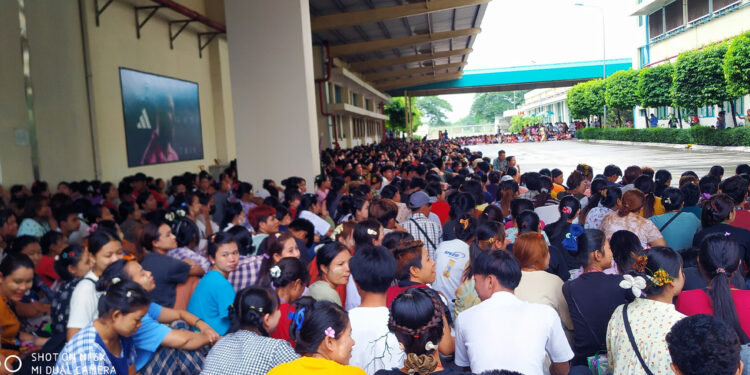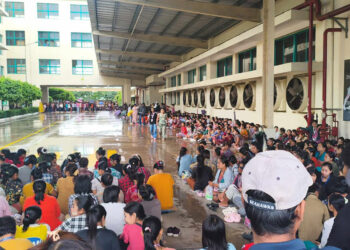Around 4,000 workers at a Taiwanese factory in Yangon that manufactures shoes for global brand Adidas have staged a sit-in strike since Wednesday evening for higher wages.
Tsang Yih Shoe Factory in Hlaing Tharyar Township is one of the largest Adidas footwear suppliers, employing around 6,800 workers. Currently, workers are paid just 7,600 kyats a day or less than US$2 at the market rate .
Workers are demanding 12,000 kyats instead.
“At first, we approached labor leaders about a pay increase, but they said that they couldn’t help and it was up to the employer,” a woman taking part in the strike said. “So we waited for a long time, unsure whether to submit a formal complaint to the labor office. But even if we did that, it would then have to negotiate with the employer, so we decided to take action by ourselves.”
Factory management on Thursday promised workers to respond within five days, but workers insisted on an immediate response. Management then threatened to sack them for unauthorized absence.
An official from the Federation of General Workers Myanmar (FGWM) said: “I think many factories are likely to have workers demanding pay increases from next month because some have already been asking us how to negotiate. In April, over 1,200 workers from a factory went on strike for a pay increase. Their demand was met within 24 hours, but the next day some labor leaders were dismissed, and as many as 14 workers lost their jobs.”

Tsang Yih Shoe Factory began operations in 2014 and produces for global brands, primarily Adidas.
Labor rights violations have surged in Myanmar since the 2021 coup. Workers who file complaints are usually discouraged by the slow response from the authorities. In many cases, employers bribe the junta to help suppress the strikes, and workers who lead industrial action or try to form trade unions are often sacked.
Their plight tends to go unreported as the regime has targeted labor rights activists as dissidents.
According to a survey by the Solidarity Trade Union of Myanmar (STUM), workers need a minimum daily wage of 12,000 to 17,000 kyats for an eight-hour workday to meet basic living standards.
Most workers reported rising costs for food, healthcare, housing, transportation, communication, and leisure, as the cost of living has tripled since the coup due to runaway inflation.
Yet the official minimum wage of 4,800 kyats for an eight-hour workday has not changed since 2018. In October 2023, the junta’s National Committee for Setting the Minimum Wage introduced an extra daily allowance of 1,000 kyats for workers in private-sector companies with more than 10 employees, which was increased by another 1,000 kyats in August 2024.
Workers at Tsang Yi are paid a 5,200-kyat base wage, the 2,000-kyat allowance, plus a food allowance.

















